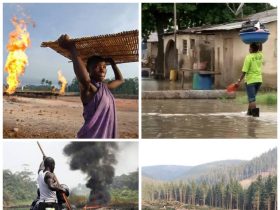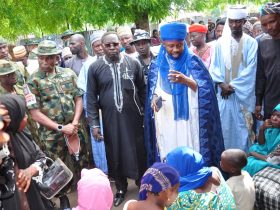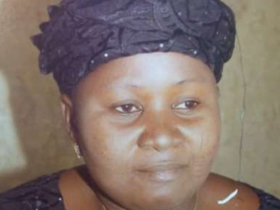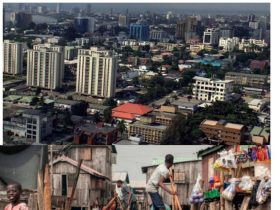“Child Marriage Epidemic Persists in Nigeria: A call for strict actions”
In Nigeria, the persistent issue of forced child marriages continues to haunt the nation, casting a lengthy shadow over its human rights landscape.
Recent reports have thrust this deeply troubling problem back into the public eye, emphasizing the pressing demand for strict law enforcement and an unwavering campaign to eliminate this harmful practice.
Child marriage remains a deeply rooted concern within Nigeria, with alarming statistics from UNICEF revealing that a substantial number of girls in the country are compelled into marriage before reaching the age of 18. This issue persists stubbornly, especially in rural areas where entrenched traditional customs maintain their grip, despite legislative attempts to curb the practice through initiatives like the Child Rights Act and the Violence Against Persons Prohibition Act.
Forced child marriage subjects young girls to a host of formidable challenges, including early pregnancies, heightened health risks, and limited access to education and economic opportunities. Additionally, it perpetuates cycles of poverty and social inequality, making it a severe human rights problem.
Despite the Nigerian government’s legal efforts to address this issue, the battle to eradicate forced child marriages remains ongoing, necessitating immediate action to protect the rights and futures of vulnerable children.
The ultimate goal is to create a society where girls can freely pursue their dreams without the looming threat of child marriage. Regrettably, the situation is particularly dire in Nigeria’s northern region, where a staggering 78% of girls are wed before their 18th birthday.
On a national scale, Nigeria stands out as one of the countries with the highest child marriage rates globally. Numerous cultural, traditional, and social norms perpetuate discriminatory practices against girls and women, creating an environment where forced child marriage is seen as an escape from poverty.
For instance, across Nigeria, sons-in-law are expected to welcome their bride’s siblings into their new households, often accompanied by financial gifts for fathers-in-law and mothers-in-law.
Forced child marriage unquestionably represents a violation of human rights and a manifestation of gender-based violence. It robs children of their ability to make choices about their lives, disrupts their education, exposes them to violence and discrimination, and hampers their full participation in economic, political, and social spheres.
Although the law strictly prohibits marriage before the age of 18 in Nigeria, the northern regions, particularly the North-East and North-West, grapple with some of the world’s highest child marriage rates. These early unions wreak havoc not only on the lives of girls but also on their offspring.
Education, poverty, and early marriage are deeply intertwined, with girls lacking primary education frequently married before the age of 15, while those with primary education typically marry by age 18. The motives behind child marriage vary by region, ethnicity, and religion, with forced marriages rooted in cultural and religious practices tied to polygamy.
Notably, those who resist entering a forced marriage often face severe consequences, including physical violence and rape. Forced marriage predominantly affects the urban and rural poor in the North, while it is less common among the more educated. In the South, forced marriage is a rarity.
In conclusion, the battle against child marriage in Nigeria remains a challenging endeavour, requiring immediate and concerted action. There is an urgent need to dismantle deeply entrenched social norms and practices that perpetuate this harmful tradition. Such actions are essential to grant girls the freedom to shape their destinies and secure their protection from this severe violation of their rights.












Leave a Reply